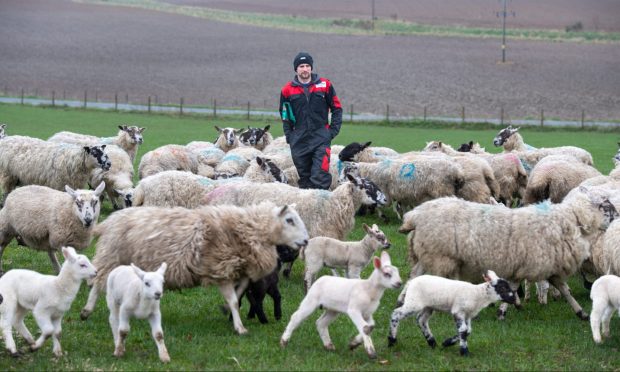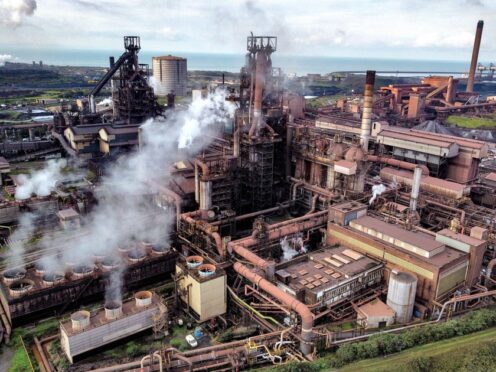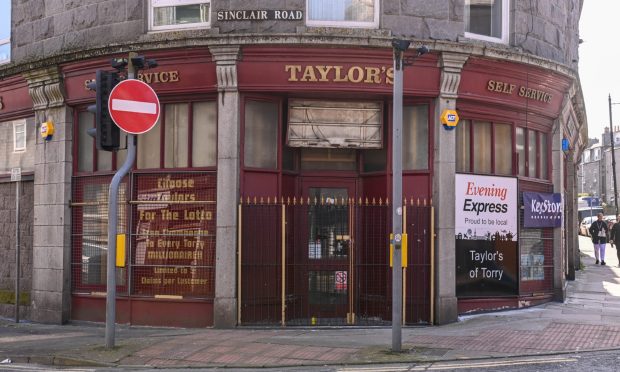People in Aberdeen have had the smallest wage growth in the whole of the UK, while residents of Shetland have the second lowest, new research has revealed.
Aberdeen is the UK area with the smallest salary growth, with wages increasing just 5.2% in the past eight years, compared to the UK average of 28.1%, according to an analysis of new official data.
Meanwhile, the Shetland Islands has experienced the second smallest wage growth in the UK, with residents seeing a salary increase of just 9.5% in the past eight years, compared to the 51% increase for residents of Hackney and Newham, areas with the highest salary growth.
Wages falling – but not everywhere
The research, by employment firm Digital ID, used new data from the Office for National Statistics (ONS) to analyse wages for 185 UK areas between July 2014 and December 2021, to discover which regions had the smallest and largest salary increases over the past eight years.
Overall, Britons have seen rises in their pay packets lag behind soaring inflation as the squeeze on UK households tightens.
The rate of inflation remained on a 30-year high in January as prices resisted the traditional tendency to fall in the month after Christmas, with cost rises affecting food and fuel.
Pressures on household finances have continued, as motor fuel prices in the UK hit a new record high last week.
Lower wages across Scotland
According to Digital ID, of the top 15 areas with the slowest wage growths, eight are in Scotland.
Na h-Eileanan Siar (outer Hebrides) had the third smallest salary increase, with workers seeing a wage hike of 14.4% in the last eight years.
Similarly, Clackmannanshire and Fife, and Caithness and Sunderland and Ross and Cromarty have had some of the UK’s slowest wage increases, with salary hikes of 18.7 and 18.9 % respectively.
Angus and Dundee City and the Orkney Islands also lagged behind in salary increases, with wages rising 19.4% and 19.6% respectively since 2014 while Inverness and Nairn and Moray, Badenoch and Strathspey saw salary hikes of just 20.7%.
Paul Gibson, managing director of Banchory-based Granite Financial Planning said the lag in Aberdeen and Shetland was to be expected as the period covers a time of significant oil and gas price decline.
“The news that Aberdeen and Shetland’s wage growth has been low since 2014 is unsurprising given their local economies do to a great extent depend on strong oil prices,” he said.
“Wage increases prior to the oil price crash were growing at unsustainable levels and a reversion to the mean was inevitable.”
Widening gulf between rich and poor
However, he said many who had enjoyed high oil and gas wages were “still exceptionally well off” compared to the UK average and highlighted the widening gulf between the have and have nots.
Recent research has revealed the richest 10% in Scotland are more than 200 times wealthier than the poorest 10%, representing a rise of 32% since 2006-08.
He said the poorest in society were likely to be the ones who are expected to be hardest hit in coming months as energy bills, food and shopping and National Insurance are all due to rise in April.
“Financial planners tend to work with the wealthiest in society and although wage growth has been slower many clients are still exceptionally well off in comparison to the national average,” he said.
“There is a growing disparity between the richer in society who will invariably have other resources to counteract inflation, such as investment portfolios, whereas those with low or no resources will be hit harder by energy bills and higher inflation in general.”
Cost of living rise crisis
A spokesperson for Digital ID said: “The UK is facing a serious cost-of-living crisis, from soaring inflation to unmanageable energy bills, and this data reveals just how hard it is for many areas of the country to swallow the costs.
“The stagnant wages in areas such as Aberdeen, South Teesside, Durham and Derby show just how much the decision to increase National Insurance by 1.25 percentage points in April – which actually translates to an average 10% increase in National Insurance – will affect workers who are just trying to provide for their families.
“With the NICs hike affecting employers, too, it is unlikely that many companies will be offering pay rises, and unless something substantial is done to ease the cost-of-living crisis, we will see many more families pushed into poverty”.











